2015 Bonanza Bird #17: Harlequin Duck
Our Birdorable Bonanza: 2015 Advent Edition continues today with a beautiful and colorful sea duck: the Harlequin Duck!
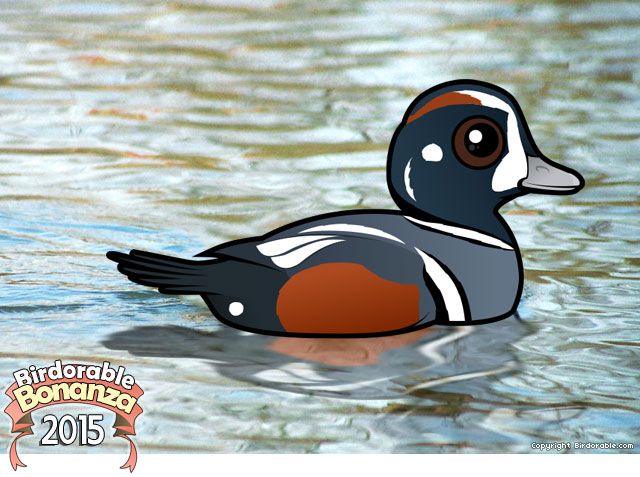
Harlequin Ducks are very beautiful sea ducks found along coastal waters across North America and eastern Asia. The species prefers fast-moving water and will frequently breed near fast-flowing streams.
The male Harlequin Duck has a striking plumage for which the species is named. Harlequin was a colorful masked character from an Italian style of improvisational comedy theater called "commedia dell'arte". Harlequin was a relatively late addition to the art form, and was popularized when the theater movement gained success in France.
The Harlequin Duck's colorful plumage gives it a lot of interesting alternative local names, including Painted Duck, Totem Pole Duck, White-eyed Diver, and Blue Streak. They have also earned the nicknames Sea Mouse and Squeaker from one of their more un-ducklike high-pitched vocalizations.
Harlequin Ducks feed by diving or by dabbling. They will take marine invertebrates, fish, and aquatic insects as prey. Algae and seeds may also be consumed.
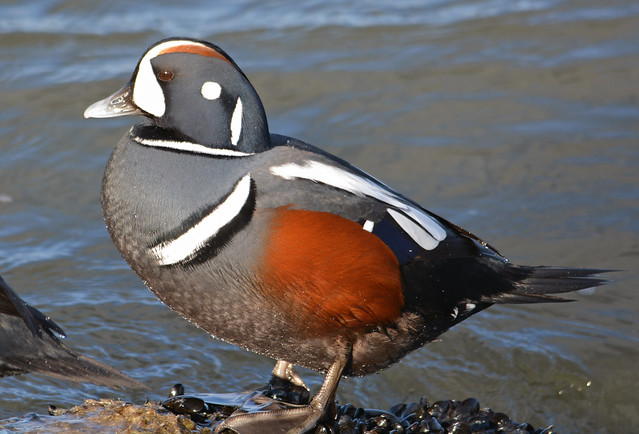
Harlequin Duck by peggycadigan (CC BY 2.0)
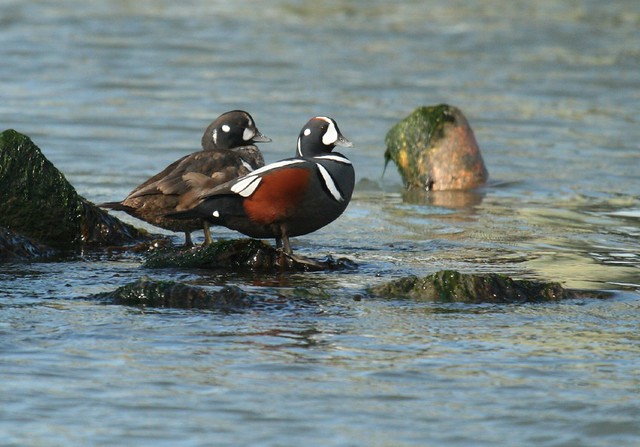
Harlequin Duck by Matt Tillett (CC BY 2.0)
The Harlequin Duck is our 633rd Birdorable bird. Be sure to check out our collection of apparel and gifts featuring the Birdorable Harlequin Duck!
Our Bonanza continues tomorrow with the largest bird of prey of Australia. Can you guess tomorrow's species?
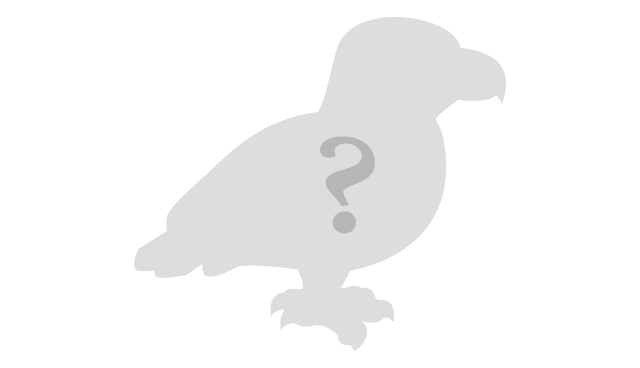



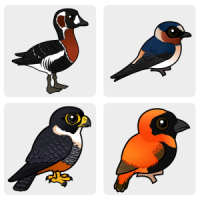

Comments
Leave a comment
Thank you!